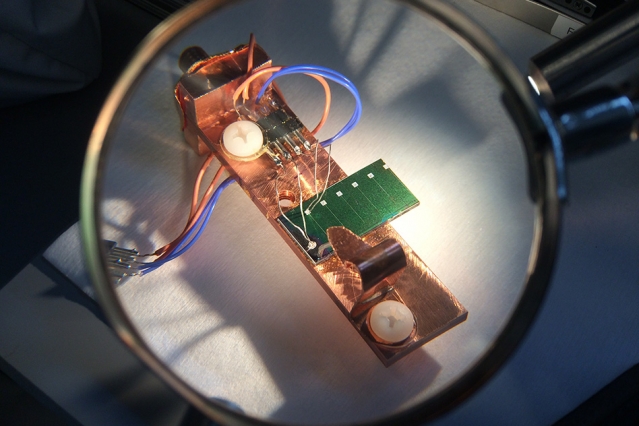A research team from the Massachusetts Institute of Technology (MIT) claims to have developed a new and faster process to assess the efficiency of new photovoltaic materials, in order to avoid long, expensive and time-consuming assessments that are usually based on lab samples for extensive testing.
The scientists said the process is based on a set of tools that relies on a series of relatively simple lab tests combined with computer modeling of the physical properties of the proposed materials, as well as additional modeling based on a statistical method known as Bayesian inference, which allows the estimates of each parameter to be updated based on each new measurement.
The system consists of three main steps: making a simple test device; measuring its current output under different levels of illumination and different voltages; and quantifying exactly how the performance varies under these changing conditions. All of these values are then used to refine the statistical model, the research group asserted.
“After we acquire many current-voltage measurements [of the sample] at different temperatures and illumination intensities, we need to figure out what combination of materials and interface variables make the best fit with our set of measurements,” said the research coordinator, Tonio Buonassisi.
“Representing each parameter as a probability distribution allows us to account for experimental uncertainty, and it also allows us to suss out which parameters are covarying,” he added.
The MIT scientists believe this new process may shorten the rate of new photovoltaic materials development, as well as many different materials, from 20 years to about three to five years.
“I’m very hopeful the combination of high-throughput computing, automation, and machine learning will help us accelerate the rate of novel materials development by more than a factor of five,” Buonassisi stated.
This content is protected by copyright and may not be reused. If you want to cooperate with us and would like to reuse some of our content, please contact: editors@pv-magazine.com.




By submitting this form you agree to pv magazine using your data for the purposes of publishing your comment.
Your personal data will only be disclosed or otherwise transmitted to third parties for the purposes of spam filtering or if this is necessary for technical maintenance of the website. Any other transfer to third parties will not take place unless this is justified on the basis of applicable data protection regulations or if pv magazine is legally obliged to do so.
You may revoke this consent at any time with effect for the future, in which case your personal data will be deleted immediately. Otherwise, your data will be deleted if pv magazine has processed your request or the purpose of data storage is fulfilled.
Further information on data privacy can be found in our Data Protection Policy.